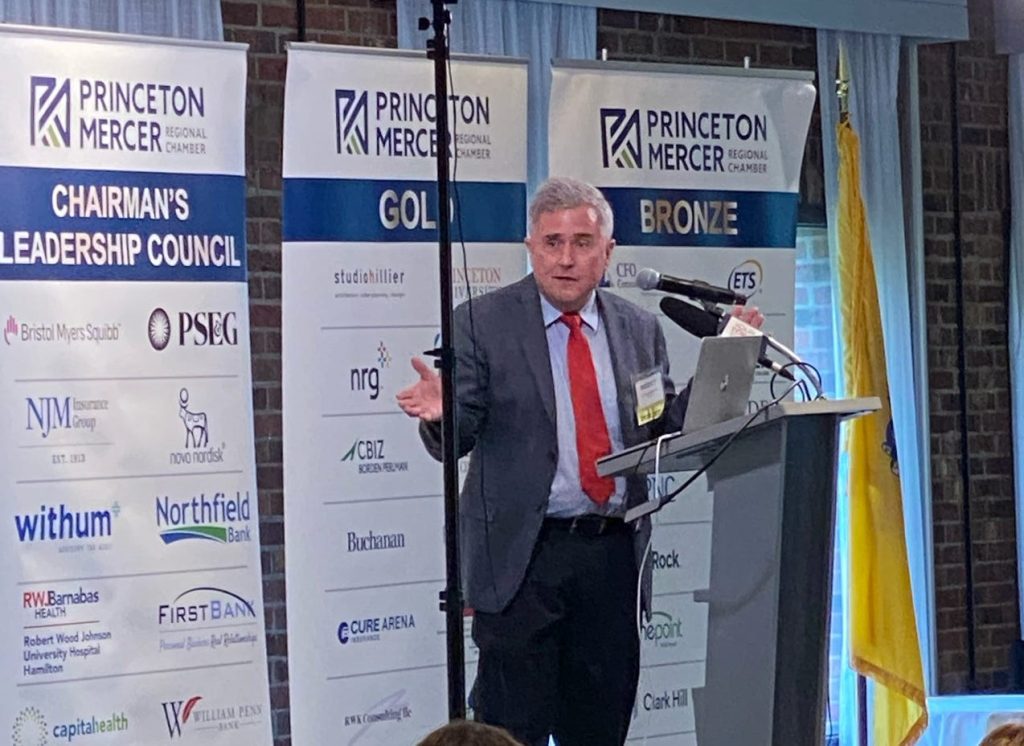This year, Dr. Thomas Delworth, a Senior Scientist at NOAA’s Geophysical Fluid Dynamics Laboratory, received the prestigious Presidential Rank Award. This honor is awarded to a select group of federal employees for their extraordinary achievements. In Dr. Delworth’s case, it recognizes his significant contributions to the field of climate science.
Throughout his tenure at GFDL, Dr. Delworth has been instrumental in advancing our understanding of climate variability, change, and predictability. His work, particularly in the realms of atmospheric and oceanic science, has been pivotal in shaping the current and future narrative of climate research.
In recognition of this significant career milestone, we had the privilege to sit down with Dr. Delworth. Our conversation covered his distinguished journey in the field, the defining moments and challenges he encountered, and the insights he has gained over the years. Moreover, we delved into his perspectives on the future of climate science and the advice he would offer to aspiring scientists in this ever-evolving field.


Receiving the 2023 Presidential Rank Award is a significant honor. What does being a recipient signify for you, both personally and in your field of work?
First, it is a great testament to the vision of GFDL, OAR, and NOAA in providing long term support for fundamental scientific research. Without such long term support my career would have been very different, and I would not have been able to accomplish much of what I have done. Secondly, I am very happy for the recognition of the important work that we do as NOAA scientists investigating long-term climate issues. When I started at GFDL, no one “on the street” had even heard of global warming, and yet NOAA had the foresight to invest in the field of climate science. This award is a testament to the ever growing importance of climate research for the health and vitality of our nation. Finally, on a personal note, it is very gratifying to receive this recognition for my many years of work at GFDL/NOAA. When I started at GFDL, I thought I would be here for a year or two and then move on and look at what happened. It has been such an honor to be able to work doing something I love for all of these years.
What sparked your initial interest in climate science, and how has that passion evolved throughout your career?
I grew up in the Midwest and was fascinated from a young age at the strong thunderstorms and tornadoes that occurred there every spring and summer. I remember many afternoons watching dark black clouds on the horizon moving in with spectacular lightning displays and strong gusty winds. I think that early fascination with Nature guided me to a career in atmospheric and oceanic science. While in graduate school, I became very interested in longer term climate, especially the role of the oceans in climate.
Can you describe a “day in the life” at the GFDL and what excites you most about your daily work?
The problems we address and the projects we take on can take many years from start to finish. It is important to always have an eye on the long term goals, but to divide projects in such a way that each day and week can bring shorter term successes. A typical day could involve many different activities: reading and reviewing journal articles, designing new simulations using our climate models to address new scientific questions, analysis of model simulations, developing methods to improve models, writing new journal articles, attending scientific meetings and presenting research results, speaking at community groups on topics related to climate change, team meetings to discuss and plan our research, along with many other types of activities. I am most excited about the “aha” moments, when new ideas suddenly appear, or when tests of an idea finally show meaningful results (whether positive or negative).
Can you share an instance where you faced a significant challenge in your research and the strategies you employed to navigate through it?
In the early 2000’s, I was asked by the late Ants Leetmaa to take over leadership of a large research group at GFDL that specialized in climate modeling. There was a major obstacle, however – for various reasons, we were a climate modeling group without a climate model. It was a little like being asked to lead a chemistry laboratory that had no chemicals or test tubes, but had lots of great scientists. A huge challenge was focusing and organizing the efforts of a large team on a single, complicated task – building our next generation climate model (called CM2.1). Thanks to the tremendous efforts of everyone involved in that effort, we were very successful, and that collective effort laid the foundation for a whole host of scientific achievements that followed – but they all rested on that strong foundation.
For young people intrigued by science, what’s one piece of advice you’d share to inspire their journey?
I would say a couple of things. First, try to find something that you are genuinely curious about and enjoy working on – something that you look forward to working on when you wake up in the morning. Second, try not to “follow the crowd”. If everyone is moving to work on one particular topic, try to find something else that is uncrowded where you can dig in and become a leader.
Looking ahead, what gives you hope in the field of climate science and research?
It is certainly encouraging how “mainstream” all of the issues related to global warming and climate change have become, and how passionate so many people are on the topic, especially young people. From a scientific perspective there are clearly pathways we can take to mitigate the impacts of climate change, but the question is whether we have the collective will to move down those pathways. Our ongoing science is crucial guidance for those pathways.
